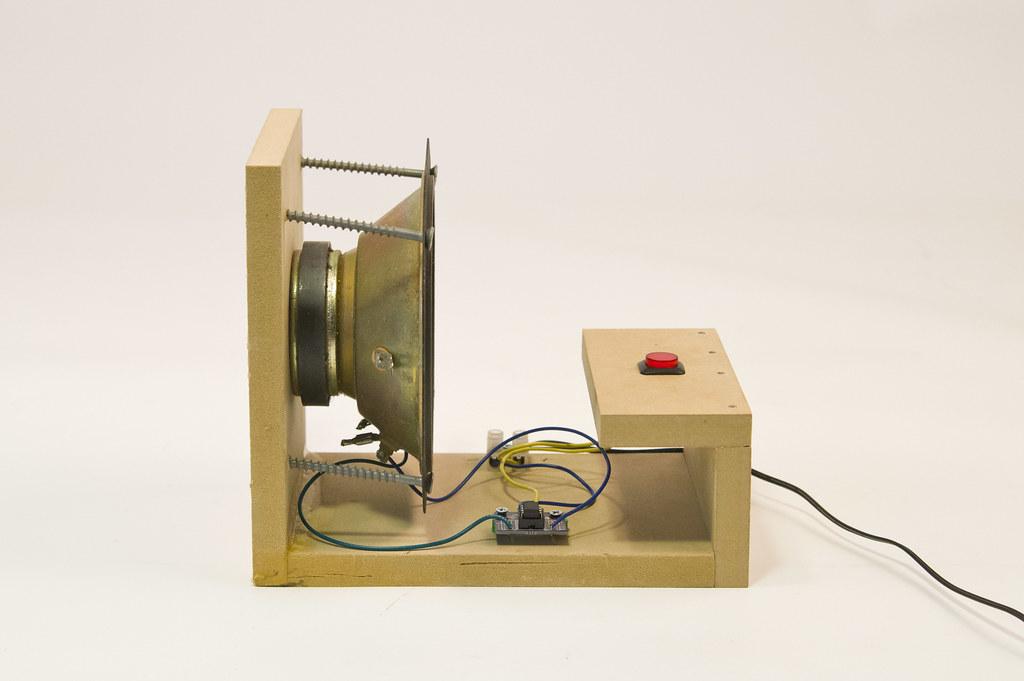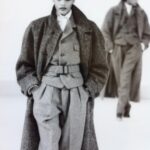Title: The Timeless Allure of Vintage Hub Caps: A Journey Through Automotive Nostalgia
In the world of automotive design, where sleek lines and cutting-edge technology often steal the spotlight, there exists a charming, oft-overlooked relic—the vintage hub cap. These circular masterpieces, once commonplace on joyrides and everyday commutes, have quietly transitioned from practical components to cherished heirlooms of automotive history. Each hub cap tells a story, reflecting the era of its creation, the aesthetics of its manufacturer, and the spirit of the cars they adorned. As we delve into the captivating realm of vintage hub caps, we uncover the artistry, nostalgia, and revival associated with these fascinating artifacts, illustrating how they continue to capture the hearts of collectors and enthusiasts alike. Join us as we explore the intricate designs, the evolution of automotive styling, and the reasons behind this enduring passion for a small yet significant part of automotive heritage.
Exploring the Allure of Vintage Hub Caps
Vintage hub caps are more than just functional car accessories; they are pieces of art that evoke nostalgia and tell a story of the golden ages of the automobile industry. With their unique designs and craftsmanship, these shiny relics capture the essence of bygone eras, from the sleek lines of the 1950s to the bold and exaggerated styles of the 1970s. Each hub cap reflects the personality of the vehicle it adorned, making them highly collectible among enthusiasts who appreciate automotive history. Popular vintage designs include:
- Streamlined chrome finishes
- Intricate center logos
- Bold color palettes
- Unique shapes like scalloped edges
Collectors often seek out these retro treasures not only for their aesthetic appeal but also as a potential investment. As the market for vintage car parts continues to grow, prices for rare hub caps can soar, leading many to consider them a valuable asset. Key factors affecting their value include:Led Zeppelin Vintage TeeModern Vintage MarshallVintage Market Days Chesterfield
| Factor | Description |
|---|---|
| Rarity | Limited production runs increase desirability. |
| Condition | Mint condition items command higher prices. |
| Brand Recognition | Iconic brands attract more collectors. |
| Historical Significance | Hub caps from notable models can be more valuable. |
A Journey Through Iconic Designs and Styles
The allure of vintage hub caps goes beyond mere aesthetics; they encapsulate a rich tapestry of automotive history. Each design tells a story, often reflecting the era it hails from, whether it’s the sleek chrome of the 1950s or the bold colors of the 1960s. Many were crafted with a level of detail and artistry that can be hard to find in today’s mass-produced components. The circular emblem, with its signature brand logo, became a symbol of pride for car owners, transforming a mundane part into a statement piece on classic cars.
These captivating pieces serve as a bridge connecting generations of enthusiasts. From the iconic spinner caps of the 1950s muscle cars to the minimalist designs found on early European models, the diversity in styles is vast. Here’s a closer look at some popular designs:
- Spinner Caps: Known for their motion, they were a staple of luxury vehicles in the mid-20th century.
- Dog Dish Caps: Simple, functional, and utilitarian, these were often seen on American muscle cars.
- Chrome Beauties: Shiny and reflective, these caps add a touch of elegance to any classic car.
- Custom Designs: Many enthusiasts create unique, personalized caps that reflect their style.
| Style | Era | Notable Models |
|---|---|---|
| Spinner Caps | 1950s-1960s | Cadillac Eldorado, Lincoln Continental |
| Dog Dish Caps | 1960s-1970s | Dodge Charger, Ford Mustang |
| Chrome Beauties | 1950s-Present | Chevrolet Bel Air, Buick Roadmaster |
| Custom Designs | 1990s-Present | Varies by Owner |
Restoration Tips for Reviving Classic Hub Caps
Reviving classic hub caps can be a rewarding project, bringing vintage charm back to life. To start, gather essential cleaning materials such as mild soap, water, soft brushes, and microfiber cloths. Begin by rinsing off any loose dirt and grime, then create a soapy solution to gently scrub the hub caps. Focus on intricate details, as grime can accumulate in crevices. For stubborn spots, consider using a potato or vinegar solution, known for their natural cleaning properties. Once cleaned, rinse thoroughly with clean water and dry with a soft cloth to avoid water spots.
After cleaning, assess the condition of your hub caps, as you may need to address scratches or rust. Use fine-grit sandpaper to carefully smooth out scratches, followed by polishing with a metal polish appropriate for the hub cap material. To protect against future wear and tear, apply a coat of clear coat sealant. For a cohesive finish, it’s also worthwhile to touch up any fading paint with high-quality spray paint that matches the original color. Completing your restoration with a protective wax can add a beautiful shine and keep your hub caps looking their best.
Where to Find Rare Vintage Hub Caps
If you’re on the hunt for rare vintage hub caps, there are several treasure troves you can explore to uncover unique finds. Local flea markets and antique shows often feature vendors who specialize in vintage car parts, providing a perfect opportunity to stumble upon elusive models. Additionally, online marketplaces such as eBay and Etsy host numerous sellers offering a wide range of collectible hub caps, allowing you to search by year, make, and model to pinpoint exactly what you need. Don’t overlook social media groups dedicated to classic car enthusiasts, as members frequently share leads on where to find specific parts and may even sell their own collections directly.
For a more localized approach, consider visiting junkyards or salvage yards, where you might find hidden gems amongst the rusted metal. Automotive swap meets are also fantastic for networking with fellow collectors who may have insights into hard-to-find hub caps or provide tips on restoration. To help you keep track of potential sources, here’s a simple table highlighting some great options:
| Location | Pros | Cons |
|---|---|---|
| Flea Markets | Unique finds; varied selections | Inconsistent inventory |
| Online Marketplaces | Convenient; vast options | Shipping costs |
| Salvage Yards | Affordable; hands-on searching | Time-consuming |
| Automotive Swap Meets | Networking opportunities; expert tips | Potential distance to travel |
Integrating Vintage Hub Caps into Modern Vehicle Aesthetics
Incorporating vintage hub caps into the design of modern vehicles creates a bridge between eras, offering a unique aesthetic that celebrates automotive history. These distinctive pieces not only add character but also serve as a conversation starter among car enthusiasts. By experimenting with placement, color schemes, and finishes, modern vehicle owners can transform their cars into rolling art pieces. When selecting hub caps, consider options that resonate with your personal style and the overall theme of your vehicle. Options include:
- Chrome finishes that gleam under sunlight.
- Matte black for a sleek, understated look.
- Colorful designs to make a bold statement.
- Classic emblems for authenticity.
To effectively harmonize vintage hub caps with modern designs, it’s crucial to consider factors such as the vehicle’s color, model, and intended message. Pairing a classic hub cap with a vintage-inspired paint job can evoke nostalgia, while contrasting it against a contemporary finish can create an eye-catching juxtaposition. A thoughtfully curated combination not only enhances the visual appeal but also underscores the timeless beauty of both vintage and modern automotive design. Below is a simple guideline to help you choose the right hub cap:
| Vehicle Style | Recommended Hub Cap Style |
|---|---|
| SUV | Chunky, bold designs |
| Sports Car | Streamlined, sleek options |
| Classic Restomod | Authentic vintage styles |
| Electric Vehicle | Modern twists on retro designs |
Caring for Your Collection: Maintenance and Preservation Techniques
Maintaining the brilliance of your vintage hubcaps involves a blend of gentle handling and appropriate cleaning techniques. Start by regularly dusting with a soft, lint-free cloth to remove debris that can cause scratches or dullness. If your hubcaps need a deeper clean, create a solution of warm water mixed with a mild detergent. Use a soft sponge or cloth to gently scrub the surface, paying attention to intricate designs. Avoid using abrasive materials or harsh chemicals, as these can damage the finish. After cleaning, rinse thoroughly with water and dry immediately to prevent water spots.
For preservation, consider storing your collection in a controlled environment. Ideally, keep them in a space that is dry and temperature-controlled to prevent oxidation and rust. It’s advisable to utilize storage options such as:
- Acid-free boxes to protect against moisture
- Cotton gloves when handling to avoid fingerprints
- Plastic wrap for additional protection against dust
Moreover, displaying your hubcaps can also be beneficial—consider wall mounts that keep them visible yet shielded from dust and damage. If you plan to showcase them, ensure that the mounts are also non-corrosive to uphold the integrity of the hubcaps.
Q&A
Q&A: Vintage Hub Caps – A Classic Touch for Every Car Enthusiast
Q: What exactly are vintage hub caps and why are they significant in automotive culture?
A: Vintage hub caps are decorative covers that fit over the wheel’s lug nuts on classic vehicles, typically those manufactured from the 1920s to the 1980s. They not only serve a functional purpose—protecting the lug nuts and adding aerodynamics—but also represent a unique piece of automotive artistry and history. These caps often feature distinctive logos, designs, and styles that reflected the manufacturer’s identity and the era’s aesthetic, making them highly sought after by collectors and automotive enthusiasts.
Q: How can one distinguish a vintage hub cap from a modern one?
A: Distinguishing vintage hub caps from modern ones involves looking at key features. Vintage caps tend to have intricate designs, logos, or even shiny chrome finishes that were characteristic of their respective periods. The materials used are also telling; vintage caps are often made from metal rather than plastic, which is common in modern designs. Additionally, the size and fit can vary; many vintage vehicles had larger wheel openings, so their hub caps may not fit modern tires.
Q: What should collectors look for when acquiring vintage hub caps?
A: Collectors should prioritize authenticity, condition, and rarity when acquiring vintage hub caps. Look for original caps rather than reproductions, as originality greatly affects value. Inspect for signs of wear, rust, or damage, but remember that some patina can add character. Rarity can greatly enhance value—certain caps were produced in limited numbers or for specific car models. Researching the brand’s history and its hub cap variations can also provide insight and context that enhances the collecting experience.
Q: How can vintage hub caps be repurposed or incorporated into modern décor?
A: Vintage hub caps can make stunning focal points in home décor. They can be used as wall art or mounted as decorative pieces in man caves or garages. Additionally, they can be transformed into functional items such as tables, clocks, or light fixtures with a bit of creativity. Their circular shape and classic designs lend themselves well to artistic ventures, making them a great way to honor automotive history while adding a unique touch to modern spaces.
Q: Are there particular brands or models that are more prized among vintage hub cap collectors?
A: Absolutely! Certain brands like Ford, Chevrolet, and Cadillac have iconic hub cap designs that are highly prized among collectors. Specific models, such as the Chevrolet Bel Air or Ford Mustang, are particularly desirable due to their storied legacies in automotive history. Limited editions or hub caps from unique variants—like muscle cars—often fetch higher prices as well. Collectors will often focus on specific brands or models that resonate personally or reflect their automotive passions.
Q: Is there a vibrant community around vintage hub cap collecting?
A: Yes, the vintage hub cap collecting community is quite vibrant! There are enthusiasts who gather at car shows, swap meets, and online platforms dedicated to classic cars. Many collectors share tips, trade parts, and discuss restoration techniques through forums and social media groups. This sense of community allows collectors to connect over shared interests, making it easier to find rare pieces and engage in conversations about the stories behind each hub cap.
Q: What is the future of vintage hub caps in the automotive world?
A: As automotive trends shift and the focus steers toward electric vehicles and modern designs, vintage hub caps may become increasingly rare and sought after. Their timeless appeal and historical significance ensure that they remain cherished artifacts of revival in car culture. With a growing interest in sustainability and retro aesthetics, we might even see vintage hub caps making a comeback in custom builds and restorations, bridging the gap between past and present in innovative ways.
Insights and Conclusions
As we turn the final page on our exploration of vintage hub caps, we are reminded that these unassuming accessories serve as more than just functional components of a vehicle; they are cherished artifacts that encapsulate the spirit, style, and innovation of their time. Each curve and design speaks to a unique history, inviting both nostalgia and admiration from automotive enthusiasts and collectors alike.
In a world dominated by the new and the novel, vintage hub caps stand as a testament to the beauty of craftsmanship and the stories that lie within every curve and dent. Whether you seek to restore a classic car or simply appreciate the artistry of a bygone era, these nostalgic treasures continue to inspire and connect us with the roads traveled before.
So, the next time you spot a gleaming hub cap from yesteryears, take a moment to admire not just its aesthetic charm, but the entire legacy it represents—a reminder that in the fast-paced march of progress, some things, like vintage hub caps, shine brighter with age.


